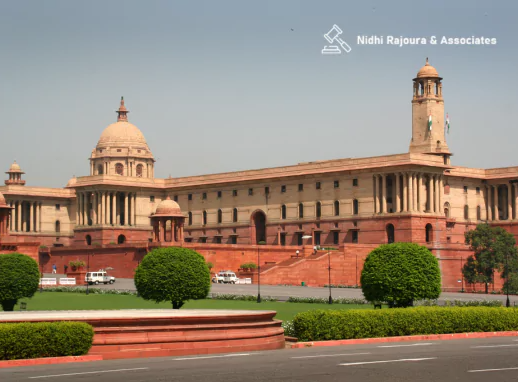In a major move, the Indian government has brought the One Nation One Election Bills in Lok Sabha. Therefore, making this proposal a big shift in India regarding elections being held. Lok Sabha (lower house of Parliament) and state assemblies elections would be conducted together. This initiative has ignited country-wide debates with many people wondering how it will better the democratic process, authority, governance, and the overall political system.
Why is One Nation One Election Important?
The introduction of the One Nation One Election Bills has several key benefits:
Cost -effectiveness: Elections in India are costly. Conducting elections separately for various states and the central government is an expensive exercise. Conducting them simultaneously means that the government will save a huge amount on resources like manpower, security and logistics.
Minimize Disruption: Regular and frequent elections often bring a lot of distractions in daily life related to political campaigning, security arrangements, and distractions from daily governance. Government can concentrate more on development work and governance with less elections.
Better Governance: Multiple elections lead to burden on the administration, geting over with multiple elections saves time, resources and energy.| This may result in even greater stability, and thus better decision-making, from central and state governments.
Strengthening Democracy: Some argue that synchronized elections create a more cohesive approach to governance as parties will deal with national issue and local issue together as opposed to independently.
How Will It Affect Political Parties?
The One Nation One Election Bills will consequently also alter how political parties operate their campaigns and strategize. In India, political parties mostly highlight state-specific issues during the state elections and national issues for the Lok Sabha elections. Rather than focusing on the state alone, in the case of simultaneous elections, they would have to cover all state and national issues, which will also alter the campaign dynamics.
Parties might also need to offer a more cohesive vision that resonates with voters nationwide, for example. They may lack the means or energy to make state-specific promises; in reaction, we might see a shift toward national policy-making. But it may end up to be a tougher competition for regional parties where national parties might come acclimate to the political scenario.
Challenges of One Nation One Election
While the proposal has its benefits, it also comes with challenges:
Amendment of the Constitution: The Indian Constitution will have to provide for simultaneous elections. This is a complex process and demands clearance from the Lok Sabha and Rajya Sabha (upper house of Parliament).
Lack of Political Consensus: There is no consensus among political parties on One Nation One Election. According to some, it will only lead to concentrating power in the hands of national parties and disrupting the federal structure of the country. State-specific issues may get less attention, and smaller parties may find it difficult to compete.
Logistics Of Election: Logistics of organizing elections for both the central and state governments simultaneously is a mammoth task. The Election Commission will has to ensure all the voting materials, polling stations and security arrangements are in place.
Dissolution of Assemblies: The proper functioning of this system would require the sync of the terms of state assemblies with that of the Lok Sabha elections. Some state assemblies, therefore, must be dissolved prematurely, creating political uncertainty.
What Happens If the Bills Are Approved?
The One Nation One Election Bills have been introduced in Parliament; if both of them pass, this will usher in a historic change in the election system in India. The government will need to come out with a concrete plan to ensure that simultaneous elections can be held seamlessly. Such things include logistical preparations, constitutional amendments, and political conversations with state administrations.
The shift may result in a more seamlessly handled electoral process with less interference and more cost-effective delivery. However, It will take careful planning and some co-operation between political parties and other stakeholders to make sure the benefits can be secured without impacting democratic norms but it can be done.
Conclusion
Introduction of the One Nation One Election Bills in the Lok Sabha is a historic step towards electoral reforms in India. It offers many advantages, including cost savings and less disruption, but there are challenges that must be overcome. Whether or not this proposal will succeed, however, will fundamentally be dependent on how the Government manages the maze of constitutional amendments, political negotiations and logistical arrangements that come with such a big change. The reform is a topic in dispute, still unfolding today the future of Indian democracy.




